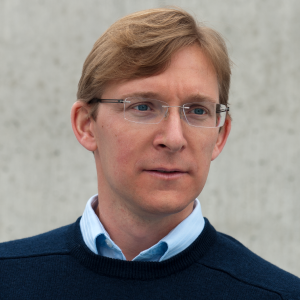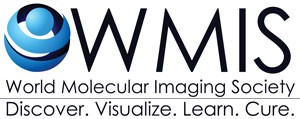
Jason P. Holland, PhD
University of Zurich; Zurich, Switzerland
Research Interests:
Our research is highly interdisciplinary. Projects lie at the interface of chemistry, biochemistry and translational molecular medicine. Our primary aims are to explore interesting new ways of attaching radionuclides to different chemical structures, and simultaneously to develop new imaging agents that can measure biomarker expression for monitoring therapy in cancers and other human diseases.
Chemical goals focus on identifying new ways of attaching radionuclides to different drug molecules, peptides, proteins, antibodies and nanoparticles. We are particularly interested in finding new chemical methods that allow easy and rapid incorporation of radionuclides including 18F, 64Cu, 68Ga, 90Y, 89Zr, 111In, and 177Lu etc onto various chemical platforms that allow targeted delivery to different cancers.
Our research involves organic and inorganic synthesis, computational studies of reaction mechanisms and metal ion bonding using density functional theory, synthesis and characterisation of radioactive molecules, and complete radiotracer development from cellular assays in vitro to full imaging, biodistribution and pharmacokinetic profiling studies in vivo.

Research Interests:
The research of my group, the Tracers in Molecular Imaging Group at the University of Helsinki, Finland, is focused on the development of new molecular imaging tools and radiopharmaceuticals for positron emission tomography (PET) and single-photon emission computed tomography (SPECT) imaging for diverse applications including oncology, image-guided drug delivery, and radiation therapy. We are focused on the development of radiolabeled tracers and theranostic systems based on porous silicon, lipid and polymer nanoparticles as well as biomacromolecules, including nanocrystalline cellulose, lignin, virus-like nanoparticles, antibodies and immune cells. To this end, our research has focused on the development of new radiolabeled reagents for bioorthogonal chemistry in vitro and in vivo. Additionally, we are looking into new ways of producing less-common radioisotopes on small medical cyclotrons as well as the applications of ISOL-produced radioisotopes in nanomaterial radiolabeling, as well as the employment of molecular imaging tools to study environmental pollutants including hot particles and nanoplastics.

Research Interests:
The research in the Zeglis Laboratory focuses on the design, synthesis, preclinical validation, and clinical translation of novel pharmaceuticals for the imaging and therapy of disease, particularly cancer. We are particularly interested in work at the intersection of molecular imaging and bioorthogonal chemistry.
- The development of in vivo pretargeting strategies for the imaging and therapy of cancer
- The development of optical imaging agents for the diagnosis and intraoperative imaging of disease
- Exploring the interplay between radioimmunoconjugates and the immune system
